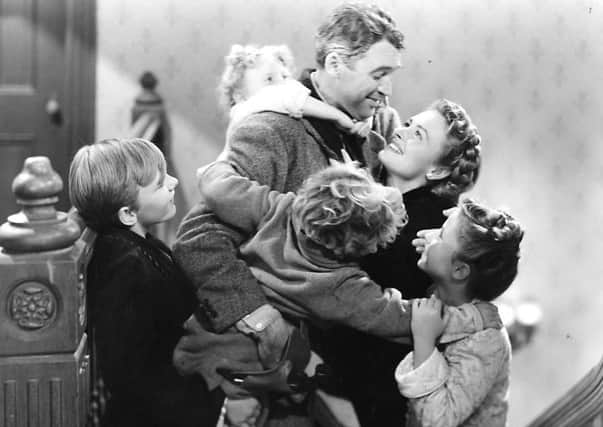David Behrens: Crumbs of festive comfort amid a generational shift in values


It was ever thus. When I was small, it was a Tri-ang Hornby train set I wanted, not a book about English kings through the ages.
Today, it seems to me, children call the shots earlier than ever. By the time they’re eight, most of them have grown out of toy stores and are doing their window shopping at Currys. No wonder Toys R Us went bust this year.
Advertisement
Hide AdAdvertisement
Hide AdIt’s a question of expectation. Two or three generations have passed since a new item in the home was a source of wonder, and instant gratification is now taken for granted. When something breaks down, it gets replaced, not repaired.
Occasionally, though, something happens to restore one’s faith in traditional values. This week, a family in Wales was taken aback to receive 14 years’ worth of presents for their two-year-old daughter from a neighbour who had recently died.
The old boy had wrapped them and left instructions with his own daughter to deliver them. They would see the little girl to her 16th birthday, he reasoned. The first present was a lovely children’s book, Christmas Eve at the Mellops’ by Tomi Ungerer.
A further crumb of comfort was contained in a survey of the nation’s favourite Christmas films. At the top of the list was Frank Capra’s 1946 masterpiece, It’s a Wonderful Life, while the somewhat more brutal, and barely Christmassy Die Hard languished at number six.
Advertisement
Hide AdAdvertisement
Hide AdIf this tells us anything, it is that the notion of clinging to the past, and to values we never cherished at the time, is not a new phenomenon. When Capra’s film was first released, hardly anyone went to see it.
I have watched it innumerable times, not because I wanted to – wonderful though it is – but because it whiled away the afternoons when there was nothing else on TV and everyone else seemed to have something better to do. Besides, there was only ever one set in the house and we watched what the adults wanted: Tunes of Glory, The Jolson Story, I’ve seen them all.
That’s a feature of family life entirely lost on today’s generation. The children don’t even need a TV in their bedroom because they have YouTube on their phones.
My own choice of Christmas viewing has barely changed in the last 50 years. I was watching the Morecambe and Wise Show in 1968 and I will be again, come Boxing Day.
Advertisement
Hide AdAdvertisement
Hide AdThis time, they’re not even repeats in the usual sense, but restored copies of two editions wiped at the time and not seen since. A small fortune has been spent in retrieving them from a TV station in Sierra Leone and turning them from black-and-white back into colour.
For those of us who made up the first TV generation, nothing – not even James Stewart and his guardian angel – evokes the spirit of Christmas past like Eric and Ernie.
It is a source of some regret that I never met them, especially as Ernie Wise had agreed to appear on a TV show I was directing in the 1990s, but had to withdraw when his health failed.
I did meet Ken Dodd several times, and the sadness I felt at his death last March could scarcely have been greater had he been one of the family.
Advertisement
Hide AdAdvertisement
Hide AdI was by no means the only one to feel that way, yet his passing was also a generational episode. My son is studying in Liverpool and was in Knotty Ash on the day he died, a mere tickling stick’s distance from Dodd’s house.
“It must be a sad day there,” I said when I heard. He didn’t know what I meant. “But you must have noticed all the TV cameras there?” He hadn’t. Too busy looking down at his phone, I expect.
Doddy never lost his childlike wonder at the world he saw, it seemed to me. I asked him how he approached taking on Yorick in Kenneth Branagh’s screen version of Hamlet. His grin broadened. “It’s a lark, isn’t it?”
There is a Christmas moral in there somewhere. His comedy, and that Capra, Eric and Ernie, was rooted in kindliness, a commodity that has receded on a tide of excess with every passing year.
I can see now that the train set I was eventually given back in the 1960s was the thin end of the wedge.